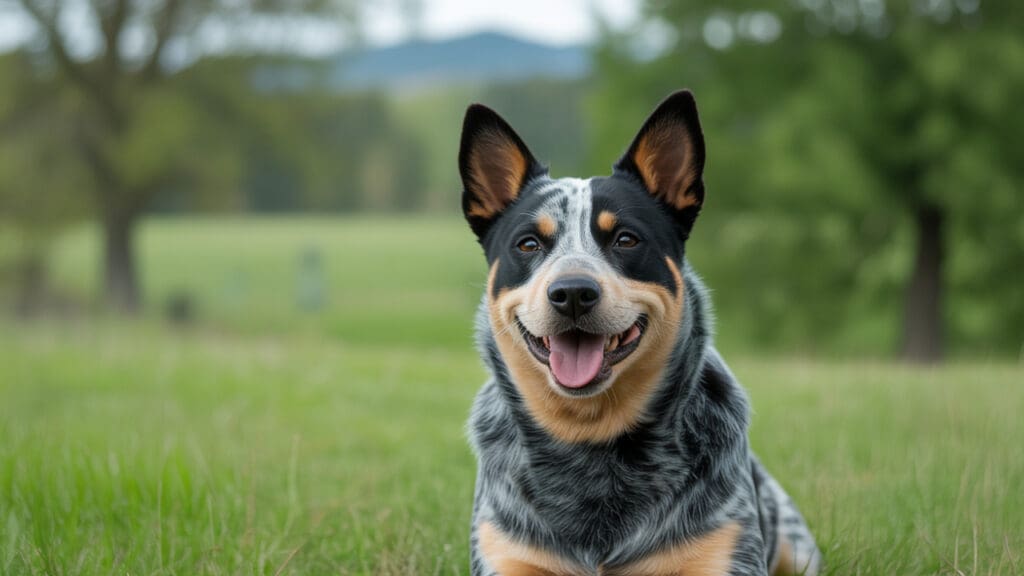
Newsletter Subscribe
Enter your email address below and subscribe to our newsletter

Enter your email address below and subscribe to our newsletter

You are looking for a canine companion. And you freeze at the thought that there are so many breeds to choose from. It can be daunting knowing that you might need to spend the next 10 years paying vet bills, facing anxiety, or worrying about daily health scares.
So, what are some of the dog breeds with the least health problems? Fortunately, you can find breeds that naturally face fewer inherited diseases. These dogs often live longer. And they require less vet care or visits throughout their lives.
For example, the Australian Cattle Dog and Basenji are quite hardy. These dogs can often live much longer compared to other breeds. And they also face fewer major health concerns.
Having said that, you should not assume that owning a healthy breed automatically equals zero maintenance. Know that even the healthiest dogs need proper care. They require regular screenings and proper nutrition. You’ll also need to set up daily routines that match your dog’s energy level.
Note that vets agree that preventative care is one of the most important things you need to practice to prevent your canine companion from developing chronic conditions. This applies to even low-risk breeds.
Here, you’ll learn why some small and medium breeds could be an ideal choice for saving you money down the line. You will also get to know how certain giant breeds aren’t as susceptible to poor health. Most importantly, we’ll explore the common mistakes you need to avoid when choosing a dog solely based on reputation or appearance.
Take our quiz to discover which healthy dog breeds match your lifestyle and preferences
Select the option that best describes your home environment
How much exercise and activity can you provide for a dog?
Different sizes have different space and care requirements
Some breeds require regular grooming to stay healthy
Some breeds are better for first-time owners than others
Based on your preferences, these breeds are known for good health and would fit your lifestyle
Known for their intelligence and endurance, these dogs are one of the healthiest breeds with a lifespan of 12-16 years.
These hardy little dogs are known for their good health and adaptability. They have a lifespan of 12-15 years.
Remember that even the healthiest breeds require regular veterinary check-ups, proper nutrition, and preventive care. Always ask breeders for health clearances like OFA certifications.

As potential dog parents, we do want to prioritize practicality over just cuteness. So, heartaches and high vet bills are some of the variables we need to consider. So, what dog breeds have the least amount of health issues?
Scientifically, a breed with fewer health problems is genetically less likely to inherit certain diseases. These conditions include hip dysplasia, brachycephalic airway syndrome, heart disease, epilepsy, and some cancers. Note that this is not to say that such breeds are immune to the diseases. They just have a lower genetic risk.
Every dog breed can and likely will experience some health issues. However, you may find some breeds that have been bred for resilience. And these are often working dogs or those with larger gene pools.
A number of veterinary studies find that healthy breeds tend to share some common traits. They are likely to have a moderate body size and a balanced bone structure. And most (if not all) of these breeds come from responsible breeding programs that use genetic screening.
Some of us may think that having a healthy breed automatically means there’ll be no vet visits. But that’s not the case. You will need to practice preventative care even for the most robust breeds. They need annual checkups and sometimes even breed-specific supplements to stay healthy.
It is true that breeds with fewer medical issues could save you money long term. These could mean fewer emergency surgeries, chronic medications, and genetic conditions. Such costs can sometimes add up to more than the adoption fee tenfold.
Remember, if you’re getting a dog that is said to have fewer health problems, ask the breeders for OFA (Orthopedic Foundation for Animals) or Canine Health Information Center (CHIC) certifications. These are proof that the dog’s parents were screened for specific diseases. Vets agree that this is one of the smartest ways to avoid preventable heartbreak.

Based on a comprehensive analysis of veterinary practice data from the Dog Aging Project involving over 27,000 dogs, veterinarians consistently identify specific breeds with significantly fewer hereditary health issues.
What the Data Reveals:

Biology, breeding, and lifestyle all play a part in your dog’s health. So, you should learn to identify some key factors in order to help you choose the dog breeds with the least health issues.
The first and possibly the biggest contributor to your dog’s health resistance is genetics. Some breeds are bred for aesthetics. So, they have extreme features like ultra-short snouts or elongated backs. These breeds tend to experience more issues down the line.
When asked what type of dog has the least health issues, vet geneticists say that dogs with a wide gene pool often have a better shot at living a healthy life. Such healthy dogs should have moderate and well-proportioned features with minimal exaggerations.
Next, you should consider size as well. Small to medium-sized dogs generally live longer. They also face fewer orthopedic issues compared to larger breeds.
Other than that, you’ll need to look at their energy levels, metabolic rate, and structural balance. For example, dogs that are bred for working or herding usually have high resistance. These dogs prioritize endurance and function over looks.
A breeder should not skip early screening for breed-specific risks. These include hip evaluations, heart checks, and eye exams. This step could ultimately reduce health issues in future generations. And that means you should always ask for health certifications and screening results.
You are most likely one of those who would search up the top 10 dog breeds with the least medical problems if you’re reading this. So, which breeds actually make the cut?
Here’s a curated list of 10 dog breeds we’ve gathered. The list was compiled based on expert consensus and real-world health data:
Take note that while these dogs are typically healthy by breed, most can only maintain their “healthy” reputation when sourced responsibly. This means you will really need to find a breeder that does the job right. Choosing a breed is only half the equation.
You may be surprised to learn this. But many of the small dog breeds with the least amount of health problems are some of the longest-living pets you can bring home.
In fact, these dogs’ compact size can give them a health advantage. They usually experience less stress on their joints. Some age more slowly in certain cases. And they do not face as many life-threatening injuries.
Also, small breeds typically do not need as much food. And they require smaller doses of medications. These dogs can usually live well into their teens or beyond.
Chihuahuas, for example, can live long, happy lives if you take good care of them. For this breed, you’ll need to watch out for common dental issues. But other than that, they face few chronic conditions, assuming they are well-bred.
Here are some other top contenders in the healthy small breed category:
That said, you should not assume that all small breeds are equally low-risk. You may find breeds like the French Bulldog or Pekingese often suffering from breathing and skeletal issues. This is thanks to their body structure. So, do your research, ask for health testing results from breeders, and choose wisely.
If you want a balance among size, energy, and health, you might fancy medium dog breeds. They are not as fragile as the toy breeds, and they usually don’t face the risks carried by the giant breeds.
Many medium dog breeds with the least health problems can be very durable and live a long life. They tend to have fewer musculoskeletal issues. You can easily manage their activity level. And you usually won’t need to worry much about them overheating or facing respiratory problems. And these could help lower that overall cost of caring for a dog.
Here are some examples of these great canine companions:
Then again, remember not to mistake “less medical” for “no medical.” Do not skip basic checkups. Your dog is not immune to illness, and you won’t want any future complications that could snowball into something costly. Get your dog an annual wellness exam and preventive blood work.
Now, do giant dog breeds with the least health problems actually exist? Is it just wishful thinking wrapped in paws and fur?
It’s true that giant breeds usually face more issues with their joints. They also often have shorter lifespans and higher rates of cardiac problems. For example, the Irish Wolfhound has one of the shortest lifespans, averaging about 7.5 years, with major causes of death including heart disease and pneumonia. But there are breeds that have shown solid health profiles, but on the condition that they are bred responsibly and raised with proper care.
Some of these include the Great Pyrenees and Anatolian Shepherd.
Take note that giant breeds will need more food. And their medical expenses (including medications and things like orthopedic beds) are also on the more expensive side. So, taking care of these gentle giants can be quite the financial commitment. Pay attention to their hip, elbow, and heart health, especially.
That said, you may find giant breeds to be slow in maturation. And this could help reduce joint stress and likely improve musculoskeletal resilience.
Vets recommend that we keep these giants lean during their growth stages. You can also provide them with joint-supportive supplements like glucosamine and omega-3s. Lastly, do not force any high-impact exercise until their skeleton has reached maturity.
You’ve probably heard people say things like mixed breeds are healthier than purebreds. This idea stems from the concept of hybrid vigor, meaning mixed breeds have a genetic advantage thanks to a broader gene pool.
This belief is something that has been passed around for years. But is it true that mixed breeds are healthy?
Well, genetic diversity can indeed lower the risk of inherited diseases. However, it’s not a guarantee for long-term health. A study of more than 20,000 dogs found there to be no significant lifespan difference between purebred and mixed breed dogs. Many mixed breeds can still carry risk genes. And this is especially true if their lineage has a history of orthopedic, neurological, or heart problems.
On the other hand, not all purebreds face inevitable health issues. If the breeders use genetic screening and prioritize health over appearance, the chances are, the dogs will turn out well. Such dog breeds with the least health issues can be predictably healthy for over a decade.
Some examples include breeds like the Basenji, Whippet, and Border Terrier. They have strong track records when it comes to longevity and structural soundness.
Remember, you should not assume that adoption shelters will always provide “safe” mixed-breed options. It’s also not a good idea to assume that all purebred dogs are attached to expensive medical bills.
Your focus should be on responsible breeding vs. unknown history. Vets recommend us pet owners to invest in a pre-adoption vet exam or Embark-style DNA test. They can offer key health insights after all.
Choosing dog breeds with the least amount of health problems is indeed important. But it’s only half the equation. You will also need the right environment and preventative care for your dog.
You should plan for routine vet visits and a balanced diet for your canine companion. Also, keep in mind that mental stimulation and appropriate exercise will contribute to your dog’s overall health in the long run.
Here’s what a health-optimized lifestyle would require:
Let’s not be a pet owner who waits for symptoms to appear before taking action. By then, the cost for intervention would’ve probably more than tripled what you could’ve initially paid for. A dental cleaning might be $300. A root canal could cost $2,000. But chronic treatments could cost way more than any of that.
Think about compatibility, commitment, and long-term well-being when you choose a dog companion. Still, how do you find what type of dog has the least health issues and still fits seamlessly into your family dynamic?
Now, make sure you understand that your prospective canine companion should ideally match your household’s energy, routines, and physical environment.
Let’s take Whippet or Basenji as examples. They are low-maintenance breeds, and they may thrive in a quiet home with just moderate activity. This makes having them around not as burdensome compared to other breeds.
On the other hand, a working breed like the Australian Cattle Dog needs regular physical and mental stimulation. You’ll need to find ways to help them avoid health issues that are stress-related.
These are some of the questions you should ask yourself, according to most vets:
Lastly, consider the cost. Breeds with fewer health problems are likely to save you much on medical bills over time. But know that the upfront cost for buying a good breed may be much higher. You’re paying for the ethical practice, too, after all.
Health Formula: Good Genetics + Right Food + Proper Exercise + Regular Checkups = A Long & Healthy Life
So, you’ve been exploring dog breeds with the least health problems for quite a while now. You probably should have come across a good number of questions. We’ve compiled some of the most frequently asked questions below for all you pet owners.
The Labrador Retriever is possibly the least harmful breed. They have a stable temperament and low aggression levels.
You might want to avoid breeds with extreme features, like the English Bulldog. This is because they are often linked to serious health risks. These include respiratory distress and joint deformities.
The Basenji is likely the one. These dogs require minimal maintenance. They are clean, don’t really bark, and have minimal grooming needs.
Golden Retrievers and Cavalier King Charles Spaniels are the ideal choices. They are among the safest dogs due to their predictable, friendly personalities.
You should be looking at Chihuahuas and Toy Poodles then. These are two of the longest-living breeds. They can usually reach 15 to 20 years of life if you take care of them properly.
Breeds with lower inbreeding rates typically live longer, and they usually have fewer medical issues. Genetic testing can tell if your dog is predisposed to any illnesses.
Generally speaking, smaller breeds put less strain on their joints and organs. So, this translates to fewer orthopedic and cardiovascular issues in the long run.
Yes, the idea of hybrid vigor does apply. However, this doesn’t guarantee good health. If the mix includes breeds with genetic issues, there is still a risk.
Not always. Many large breeds do face orthopedic challenges. However, some (like the Great Pyrenees) can stay quite healthy if you take care of them properly, assuming they were responsibly bred.
You can try using lifestyle-matching tools and talk to a vet or reputable breeder. Look for dogs that align with your daily routine, home space, and energy level. There are other things you need to consider besides just breed reputation.
Choosing a canine companion involves the consideration of many factors. Think about your lifestyle and consider compatibility.
You will also need to ask the right health questions and try to avoid common pitfalls. For instance, you should never skip preventative care or chase trendy breeds with hidden risks.
You should now have the right tools to identify which breeds are likely to live longer. You should also have more insight into the costs associated with your possible choices. Remember to look into the routine wellness plans as well.
Take your time and choose the dog that best suits you. Your Chihuahua and Australian Cattle Dog will thrive under your ready ownership. If you’re ever in doubt, always talk to a vet or revisit the tips here to narrow down your options.
Is there a specific dog breed you’d recommend? Is there one you would avoid? Share your insight in the comments below!